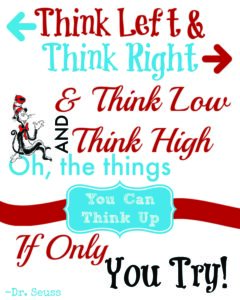In my last blog focusing on how to teach a child with dyslexia to read at home, I looked at common reading issues associated with dyslexia and how as parents we can help. Today I’m going to look at writing, spelling and dyslexia (specifically related to primary-age kids).
Children with dyslexia will often have more severe issues with spelling than they will reading.
The more common difficulties associated with writing, spelling and dyslexia include:
- Vowel sounds. Many kids will find vowel sounds very difficult and will often leave them out.
- Memorising weekly spelling tests. If the spellings are memorised, it will be common for them to be forgotten just a short while later when used in constructing sentences.
- High-frequency sight words (common words) such as: does, they, what and where are often misspelt.
- Misspellings occur even when copying work directly from another source.
- Mistakes. There is often a great deal of crossing and rubbing out in a single piece of work.
Poor and illegible handwriting often goes hand in hand with dyslexia and this can be caused by dysgraphia. A child with dysgraphia has poor fine motor skills. They can find it very difficult to organise information that is stored in memory and get words onto paper.
Signs of dysgraphia in children include:
- Unusual pencil grip. It is common for a thumb to be placed on top of the fingers (known as a fist grip)
- Don’t break up sentences
- Don’t use capital letters/full stops
- Younger children will often watch the tip of the pencil as they write with their head on the table.
- Letters are often written with uncommon starting and ending points.
- Difficulty correctly fitting words and letters on the lines
- Tight pencil grip that can cause cramps in the hand. As a result, the hand will need to be frequently ‘shaken out’
- Writing is a slow and difficult
- Copying from books or off boards is often slow and very tedious. Usually, children with dysgraphia can only memorise one or two letters at a time.
- It is common for children with dysgraphia to lose their place when copying
- Misspellings and poor grammar when copying are also common.
- Use simple one-syllable words when writing
- Find the difference between a complete sentence and a fragment confusing
- Words may be widely spaced or tightly pushed together. Margins are often ignored.
A writing block
Dysgraphia is in essence a writing block and when combined with the spelling difficulties that dyslexic children often struggle with, writing is often painful and extremely exhausting. The focus it takes to copy a simple sentence is immense.
Huge gulf between what they know and how they communicate in writing
Dyslexic children and those struggling with dysgraphia will often find it far easier to tell you something rather than write it down. There is often a huge gulf between the writing and the telling
Once again, as a parent, there are a number of ways you can help your child if they are struggling with any aspect of reading/writing/spelling. This is something I will be looking in-depth at over the coming weeks. Firstly, dyslexia does not need to be a barrier to anything your child wants to become. It just requires a different style in learning and a change in perspectives. Kids with dyslexia have an endless list of strengths and by no way should dyslexia stop them from doing anything they want to. Click here to be inspired by this detailed list of potential careers for children with dyslexia.
Spelling and dyslexia. How to help at home.
For a detailed approach to teaching spelling at home or in the classroom, click here
- Always practice a weekly spelling list with your child. They won’t enjoy it and may not get them all correct, but it helps to instill a routine, helps with rote memory and will ultimately help with spelling. Praise highly when correct and give the correct spelling and move on when the spellings are incorrect.
- Get your child typing and using the built-in spellchecks. TTRS is (in my opinion the best touch typing program on the market)
- Make sure your child reads through their work even if they can’t spot their mistakes.
- Never use dyslexia as an excuse for why your child shouldn’t do something.
- Work with them on projects to support with spellings if need be
- Spell out words slowly for them when they need help.
- Make spelling fun. Games don’t have to be online. Games like Boggle and Bananagrams both have junior versions for primary aged kids. Scrabble Junior is another fun family game. I have compiled a long list of the best games for dysgraphia.
- For younger kids, magnetic letters, wooden letters and traceable letters are great fun as are the erasable letter writing exercise books.
- Patience is a virtue! Most kids with dyslexia will want to avoid spelling tests at all costs. It’s up to us as their parents to take the time to reassure them and support them with areas where they struggle.
Help with writing
See my blog for the best dysgraphia tools here
- Try different types of writing paper (highlighted, raised, graph and coloured paper all work better for some children)
- Use a comfortable writing grip which will help if your child holds onto a pencil too hard.
- Teach your child to touch type. This is obviously not something that will happen overnight, but once they can touch type they will find it easier to take notes, easier to proofread their own work and easier to check their spellings. Touch typing will enable them to get their ideas onto paper without as much stress.
- If the struggle with writing is taking away from their ability to get their creativity out, introduce a speech-to-text program
- Strengthen your child’s fine motor skills with play dough.
- Include gross motor skills activities into your weekly schedule. These include: trampolining, bike/scooter riding, dancing and martial arts
- Consider moving straight to cursive writing. This can (in some children) reduce frustration and enable them to write better.
- Work with your child to evaluate and change the writing goals as needed.
Click here for the next blog in this series – rote learning and organisation. This is another issue children with dyslexia suffer from.
If you would like to speak to me in person, or have a question about anything at all in this blog, you can contact me here. I love to hear from you all!


Recent Comments